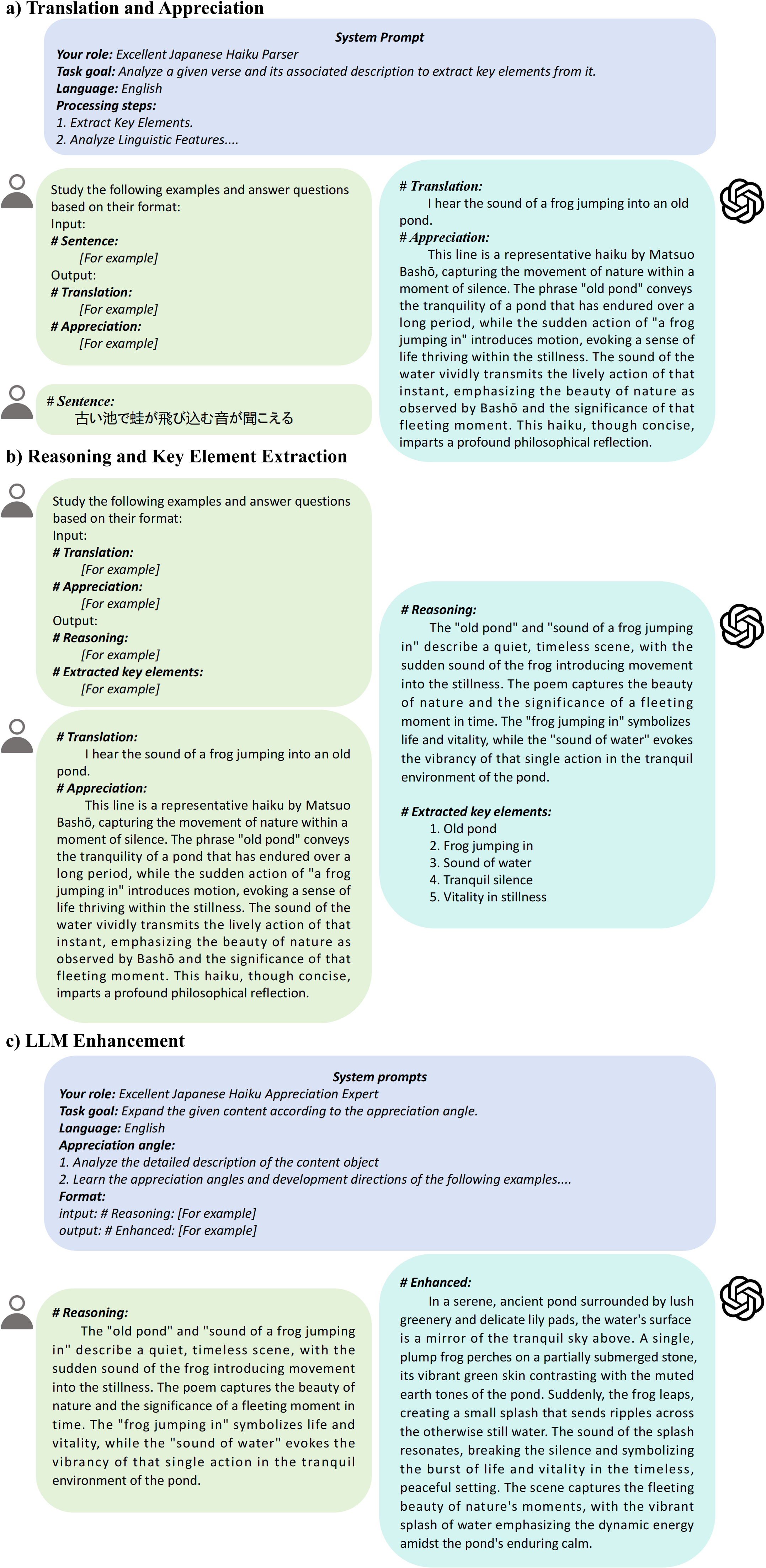Syllables to Scenes: Literary-Guided Free-Viewpoint 3D Scene Synthesis from Japanese Haiku
Author Name


Abstract
In the era of the metaverse, where immersive technologies redefine human experiences, translating abstract literary concepts into navigable 3D environments presents a fundamental challenge in preserving semantic and emotional fidelity. This research introduces HaikuVerse, a novel framework for transforming poetic abstraction into spatial representation, with Japanese Haiku serving as an ideal test case due to its sophisticated encapsulation of profound emotions and imagery within minimal text. While existing text-to-3D methods struggle with nuanced interpretations, we present a literary-guided approach that synergizes traditional poetry analysis with advanced generative technologies. Our framework centers on two key innovations: (1) Hierarchical Literary-Criticism Theory Grounded Parsing (H-LCTGP), which captures both explicit imagery and implicit emotional resonance through structured semantic decomposition, and (2) Progressive Dimensional Synthesis (PDS), a multi-stage pipeline that systematically transforms poetic elements into coherent 3D scenes through sequential diffusion processes, geometric optimization, and real-time enhancement.
Method
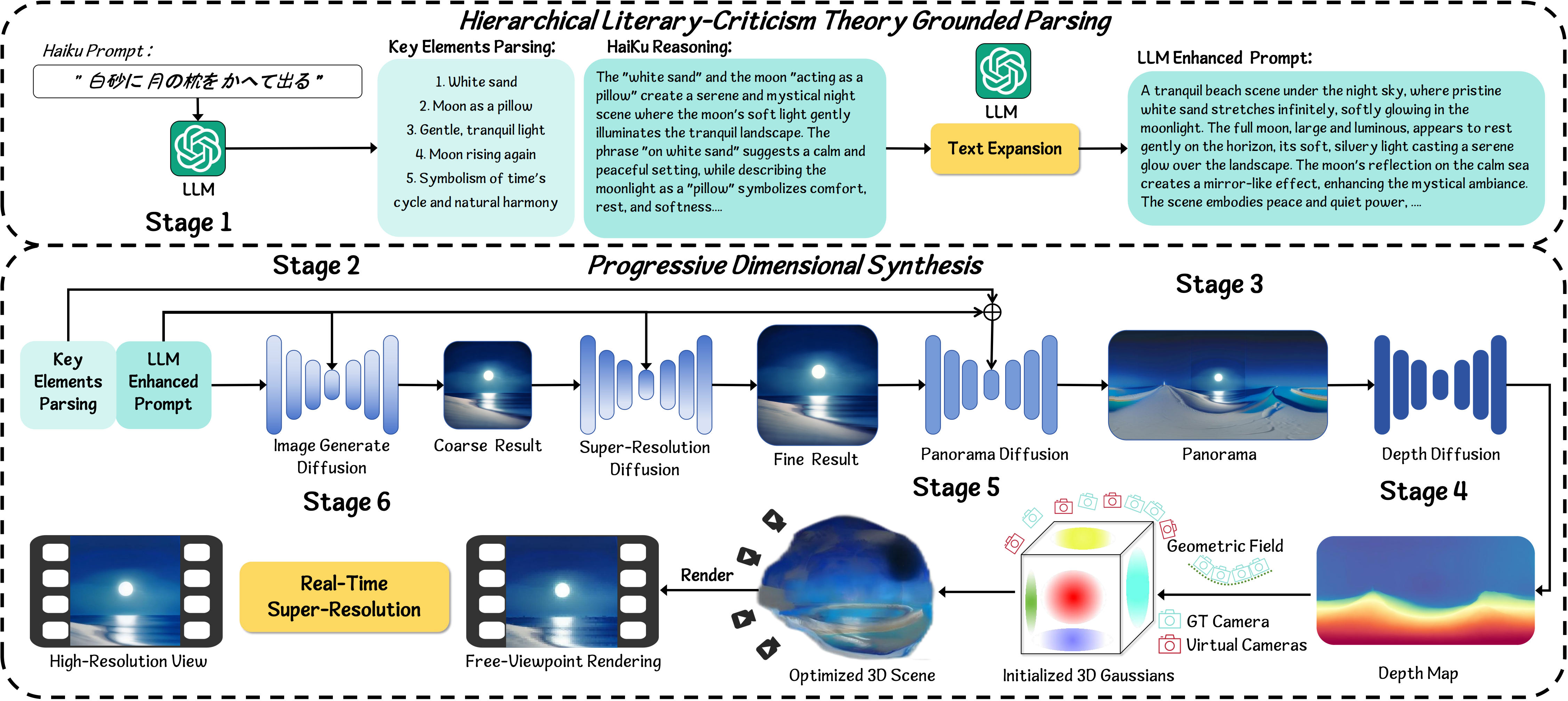
3D Scene Generation
Results
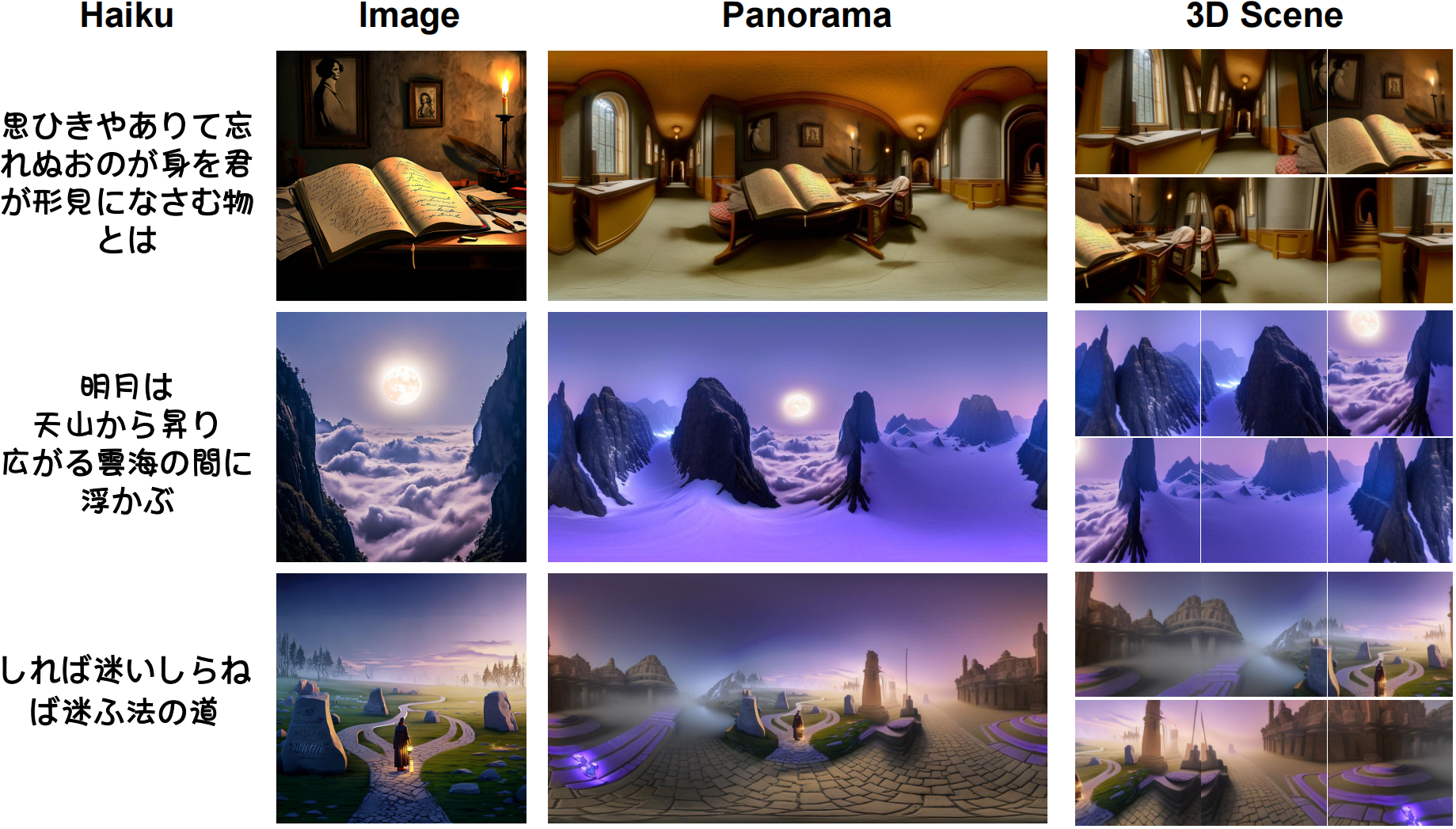
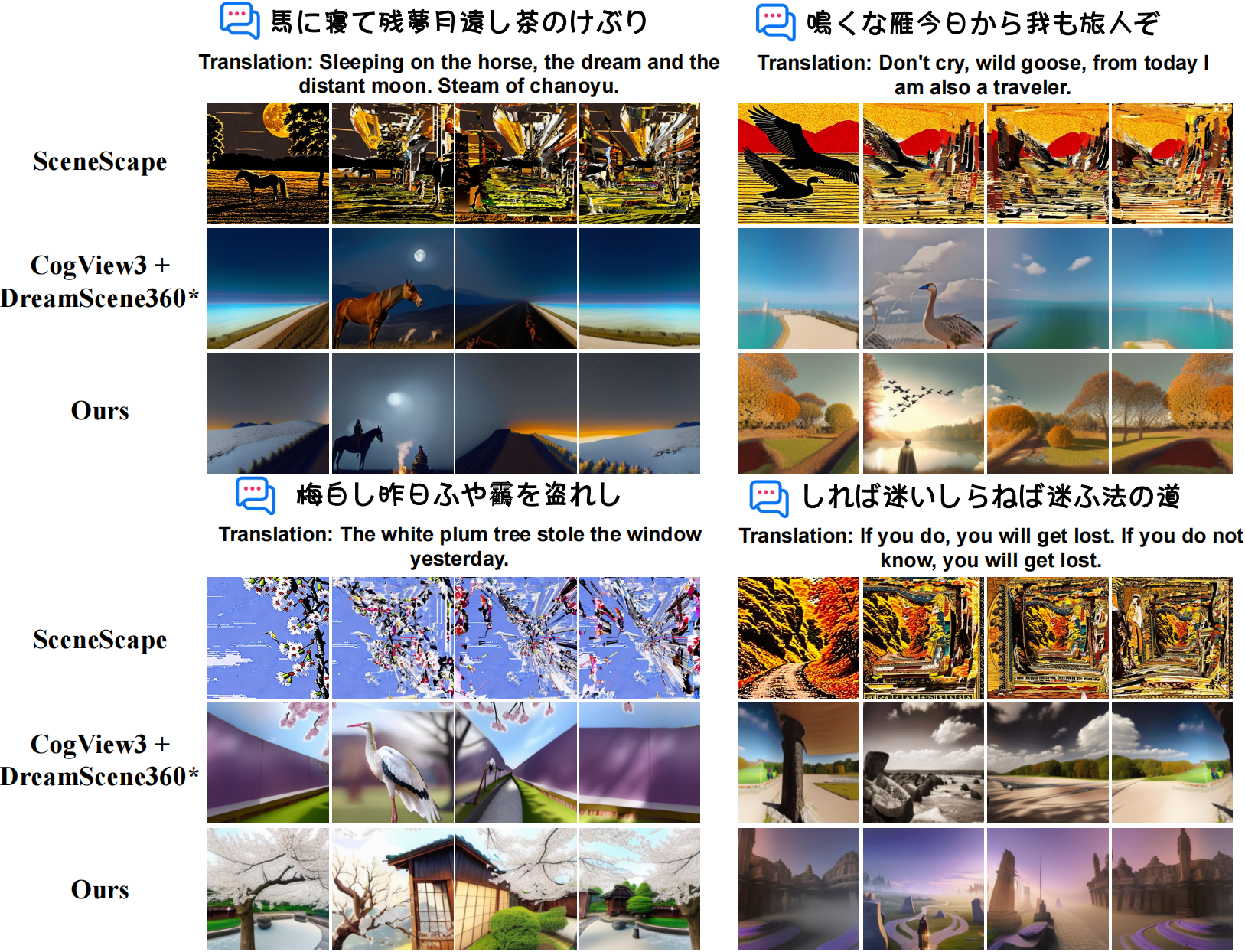
More Results
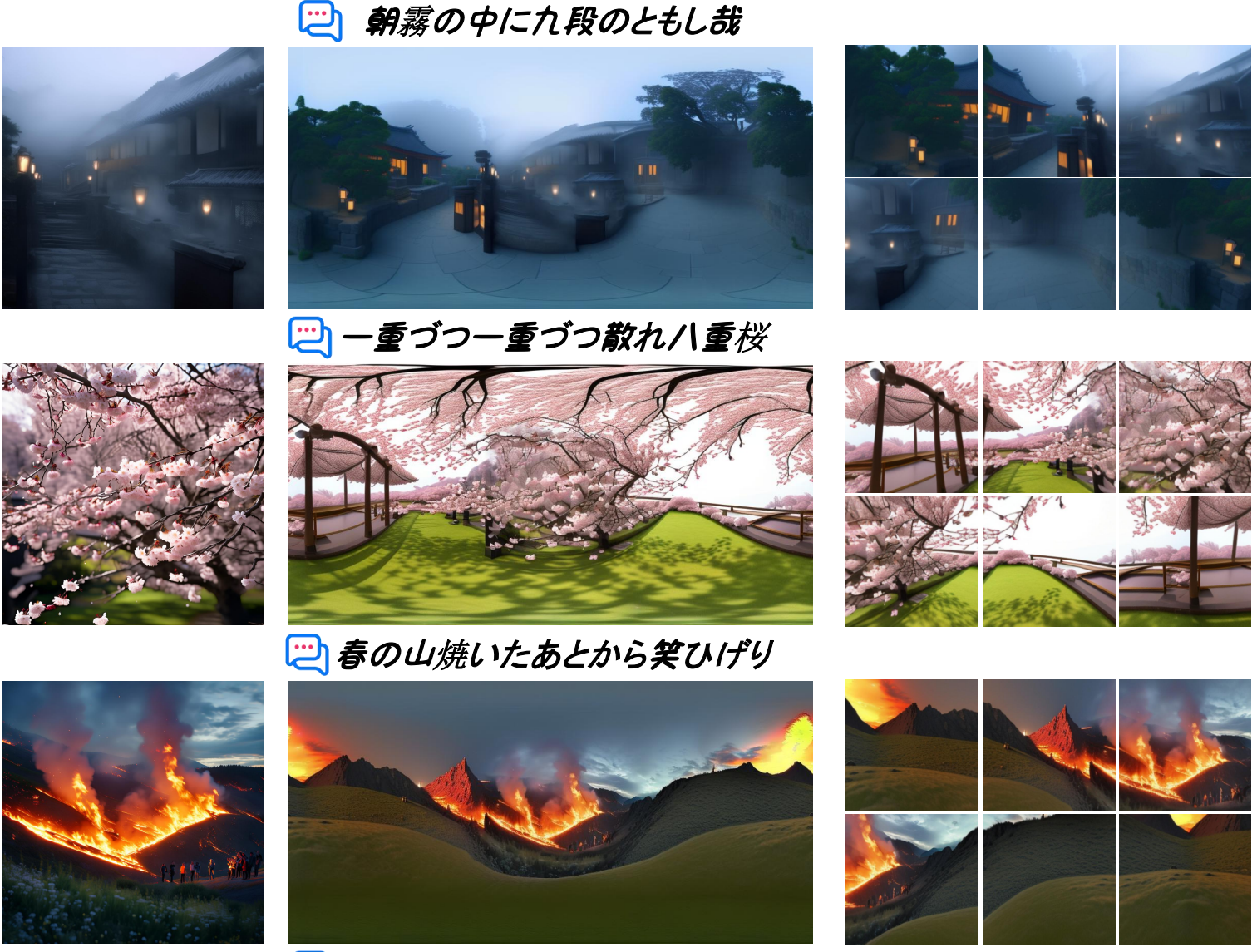
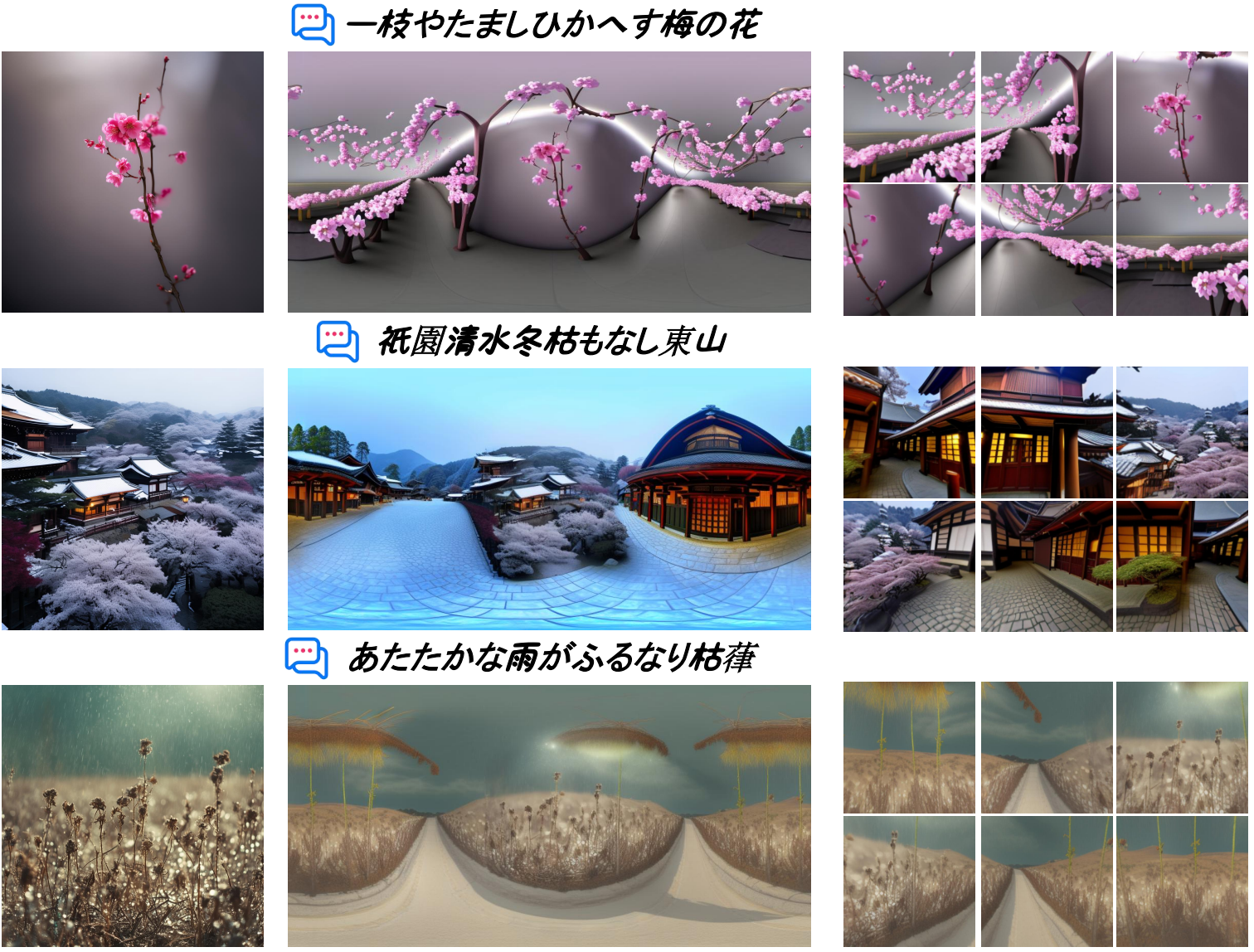
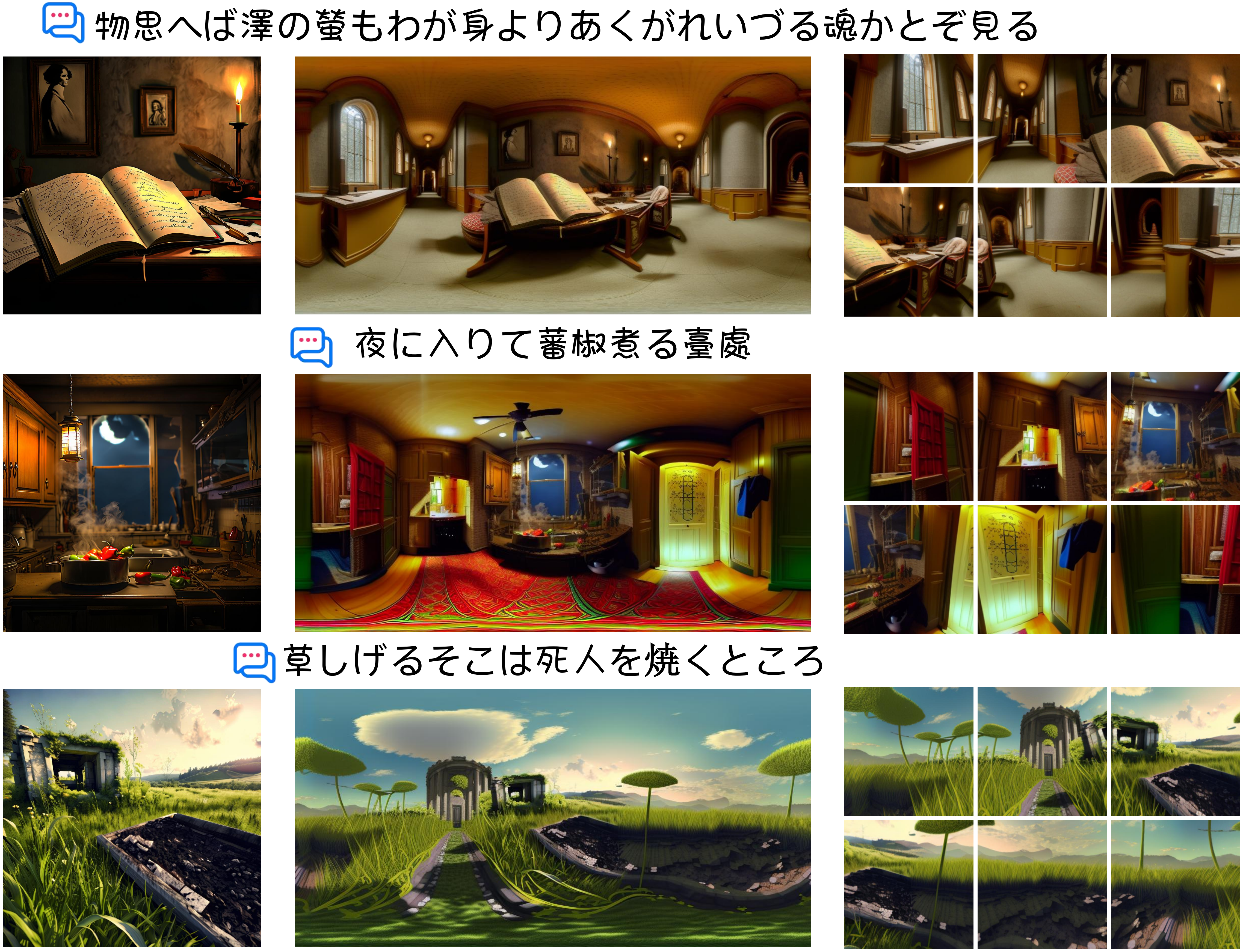
Haiku Enhancement
